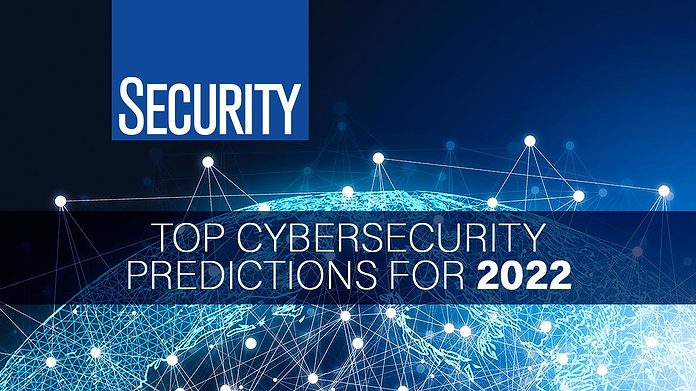Future-Proof Your Service: Secret Cybersecurity Forecasts You Need to Know
As services challenge the accelerating pace of digital transformation, recognizing the evolving landscape of cybersecurity is critical for long-lasting resilience. Predictions suggest a substantial uptick in AI-driven cyber dangers, along with increased governing scrutiny and the crucial change towards Zero Trust fund Architecture.
Surge of AI-Driven Cyber Dangers

One of the most concerning developments is the use of AI in creating deepfakes and phishing schemes that are remarkably convincing. Cybercriminals can make audio and video material, posing executives or trusted individuals, to manipulate sufferers right into disclosing sensitive information or accrediting illegal purchases. In addition, AI-driven malware can adjust in real-time to evade discovery by conventional safety and security actions.
Organizations have to identify the urgent requirement to strengthen their cybersecurity frameworks to battle these advancing hazards. This includes investing in advanced danger detection systems, promoting a society of cybersecurity recognition, and executing durable event reaction plans. As the landscape of cyber dangers transforms, proactive procedures come to be vital for safeguarding sensitive data and keeping service honesty in a progressively digital world.
Boosted Emphasis on Data Privacy
How can companies effectively browse the growing focus on data privacy in today's electronic landscape? As regulative structures develop and customer assumptions rise, businesses have to focus on robust information personal privacy methods. This includes adopting extensive data administration plans that make sure the ethical handling of personal details. Organizations needs to perform regular audits to evaluate conformity with laws such as GDPR and CCPA, recognizing possible susceptabilities that could cause data violations.
Purchasing employee training is important, as team awareness straight influences information protection. Organizations must cultivate a culture of personal privacy, motivating employees to comprehend the relevance of protecting sensitive details. In addition, leveraging technology to boost information safety and security is necessary. Executing sophisticated security methods and safe and secure information storage solutions can dramatically minimize dangers connected with unapproved gain access to.
Partnership with legal and IT groups is crucial to straighten data personal privacy campaigns with company objectives. Organizations needs to additionally involve with stakeholders, consisting of clients, to communicate their commitment to data privacy transparently. By proactively resolving information privacy worries, services can construct depend on and boost their credibility, eventually adding to long-lasting success in a progressively looked at electronic setting.
The Shift to No Depend On Style
In reaction to the evolving threat landscape, companies are significantly adopting No Depend on Style (ZTA) as an essential cybersecurity strategy. This method is based on the concept of "never ever trust, always verify," look what i found which mandates continual confirmation of customer identities, devices, and information, despite their place within or outside the network boundary.
Transitioning to ZTA involves applying identification More Help and gain access to management (IAM) solutions, micro-segmentation, and least-privilege gain access to controls. By granularly regulating access to sources, companies can mitigate the danger of expert dangers and reduce the impact of external breaches. ZTA includes robust monitoring and analytics capacities, enabling organizations to detect and respond to anomalies in real-time.

The shift to ZTA is also sustained by the boosting adoption of cloud solutions and remote work, which have broadened the attack surface area (cybersecurity and privacy advisory). Conventional perimeter-based protection designs want in this new landscape, making ZTA a much more durable and adaptive framework
As cyber hazards remain to grow in sophistication, the adoption of No Count on concepts will be crucial for companies seeking to protect their assets and maintain regulatory compliance while ensuring service continuity in an uncertain environment.
Regulatory Changes on the Horizon

Forthcoming laws are expected to address a series of issues, consisting of data privacy, breach notice, why not try this out and case action methods. The General Data Protection Policy (GDPR) in Europe has actually established a precedent, and comparable frameworks are emerging in other regions, such as the USA with the proposed federal personal privacy regulations. These policies usually impose strict charges for non-compliance, stressing the need for companies to prioritize their cybersecurity measures.
Furthermore, markets such as finance, medical care, and crucial facilities are most likely to face a lot more rigorous needs, showing the sensitive nature of the data they manage. Conformity will not simply be a legal commitment but a critical part of structure count on with clients and stakeholders. Organizations must stay ahead of these changes, incorporating regulative needs right into their cybersecurity strategies to ensure durability and protect their properties successfully.
Significance of Cybersecurity Training
Why is cybersecurity training a crucial element of a company's defense approach? In an age where cyber risks are increasingly innovative, companies must acknowledge that their staff members are usually the first line of defense. Effective cybersecurity training furnishes staff with the understanding to recognize prospective threats, such as phishing attacks, malware, and social engineering methods.
By promoting a society of security awareness, companies can substantially decrease the danger of human error, which is a leading root cause of information violations. Regular training sessions guarantee that workers stay notified about the most up to date risks and best methods, consequently improving their ability to react appropriately to incidents.
Additionally, cybersecurity training promotes compliance with governing demands, decreasing the risk of legal repercussions and punitive damages. It additionally empowers staff members to take possession of their function in the company's safety framework, leading to an aggressive as opposed to responsive strategy to cybersecurity.
Final Thought
In verdict, the developing landscape of cybersecurity needs aggressive procedures to address emerging hazards. The surge of AI-driven strikes, coupled with increased data personal privacy concerns and the change to Zero Trust Design, demands a thorough technique to security.